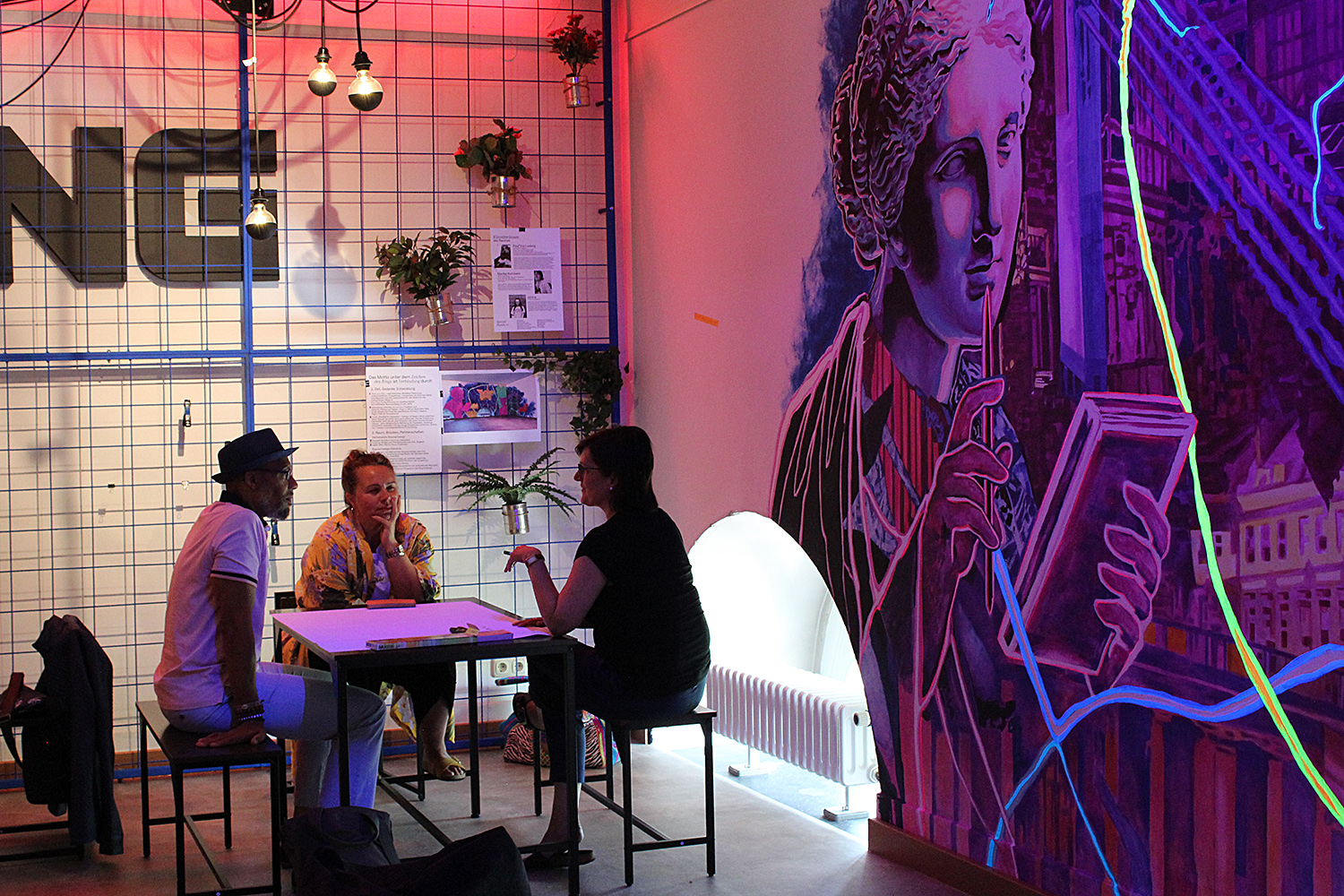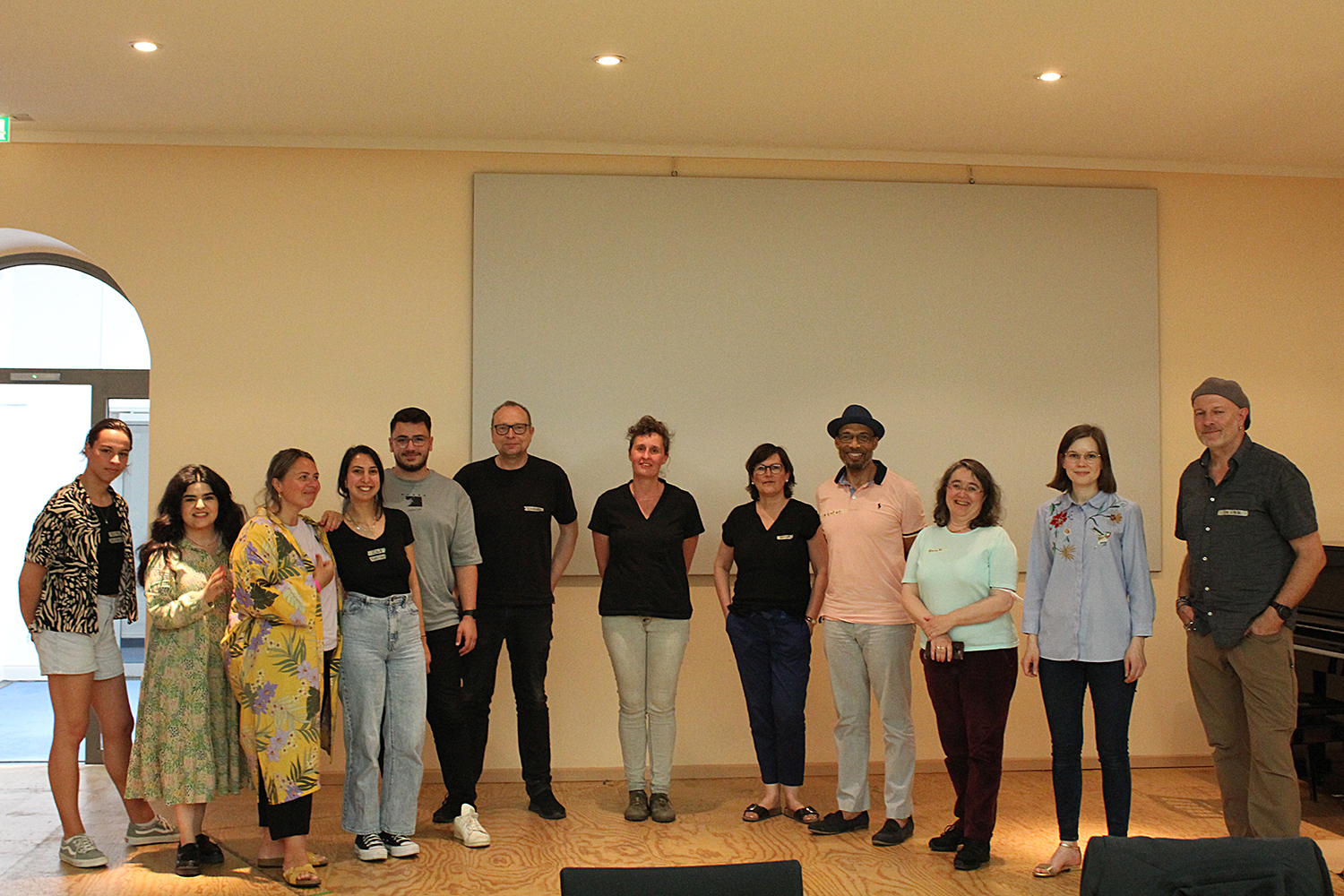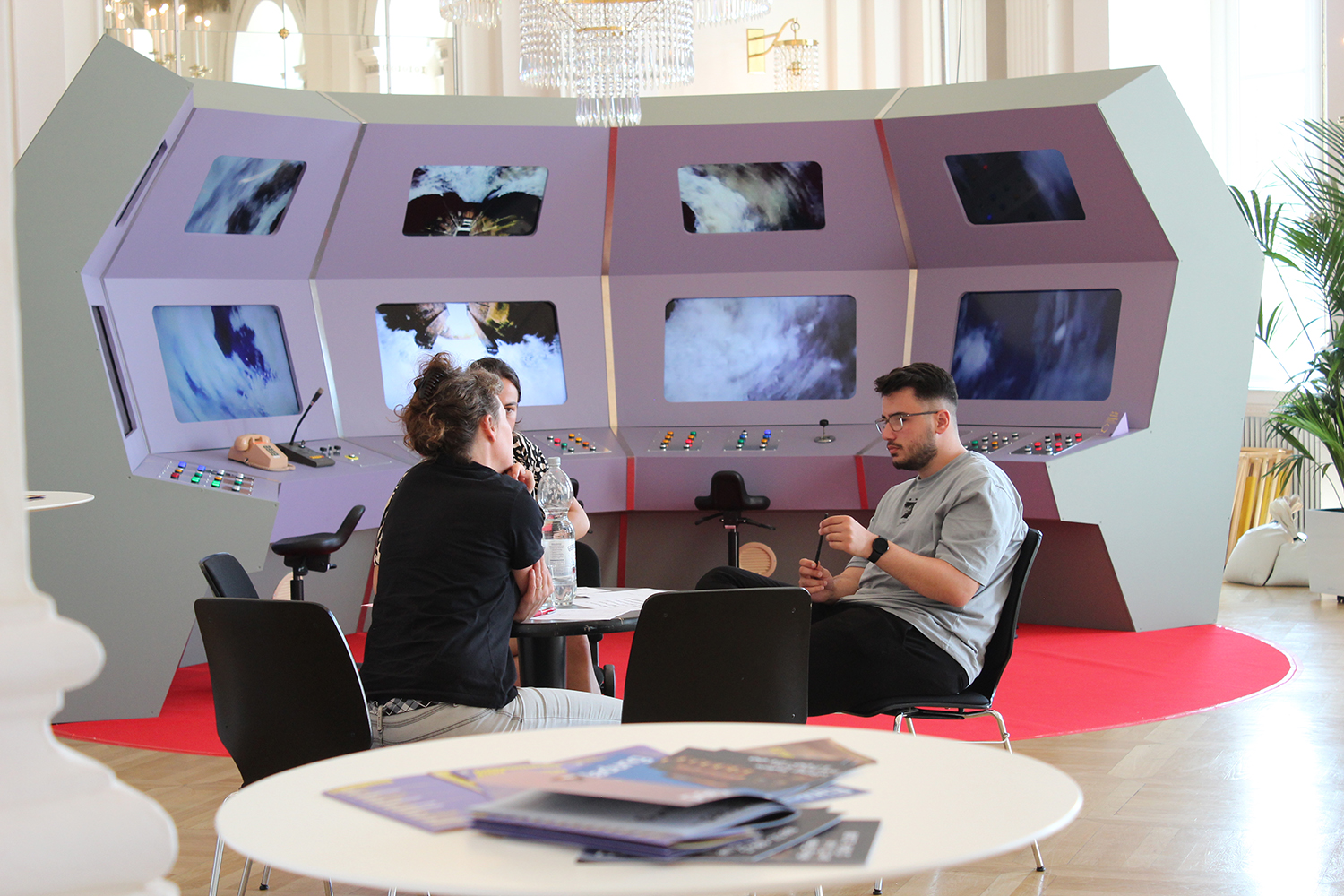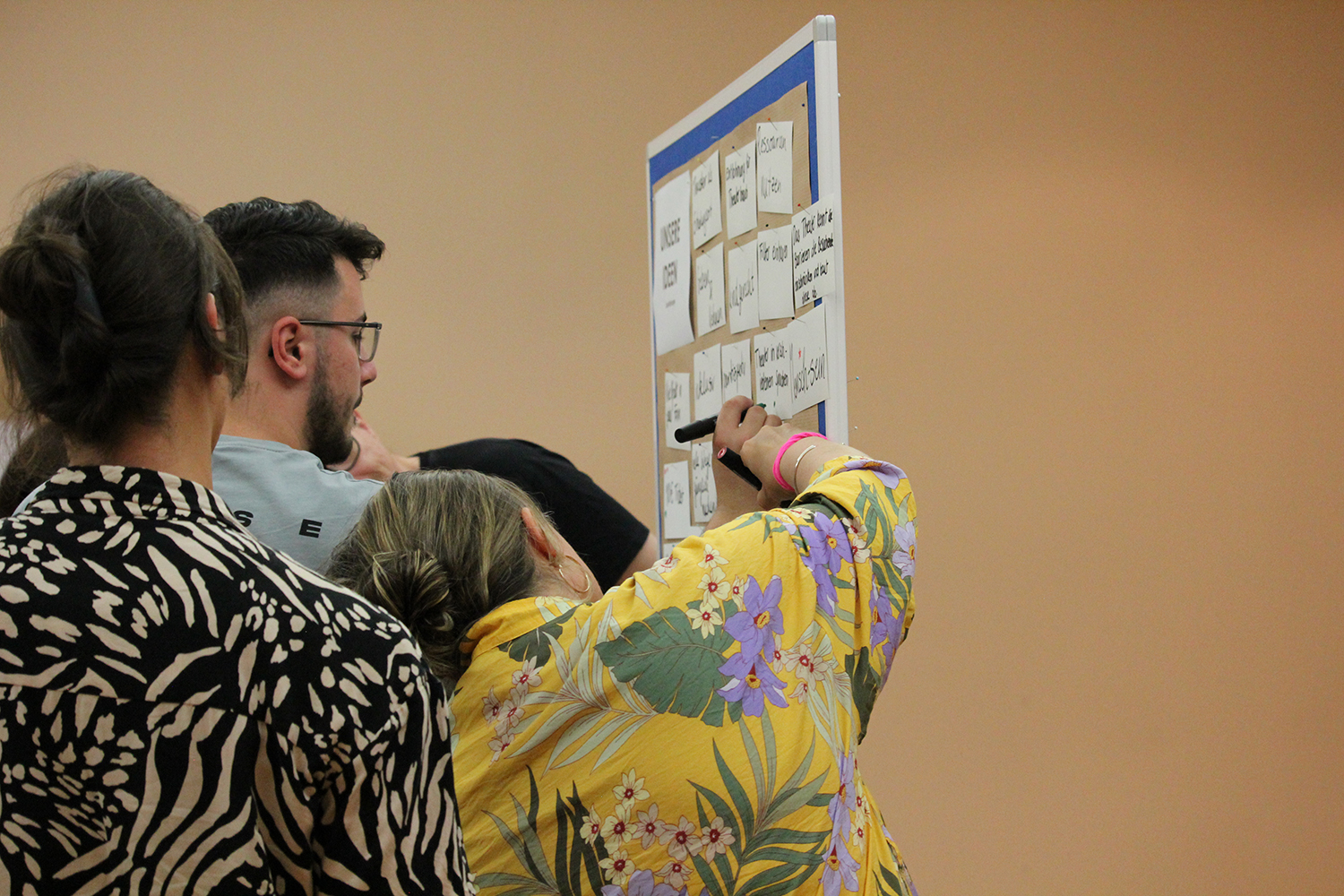“Positive atmosphere ready for change” Using the future workshop method at the State Theatre of Braunschweig
What is the cultural heritage of a diverse, regional society and how could it be negotiated in contemporary theatre? These were the questions addressed by the first Future Workshop of Technische Universität Braunschweig, which was organised in cooperation with the JUNGES! Staatstheater. The group work method is an opportunity for co-creation with researchers and social actors from the Knowledge Transfer Team in the Transfer- und Kooperationshaus of TU Braunschweig.

Current and social problems were analysed by the participants of the Future Workshop. Photo credit: E. Qirinxhi/TU Braunschweig
The Future Workshop is a method developed by Robert Jungk to develop ideas and solutions for future challenges in a creative and participatory way. It is based on the idea that the future can be shaped and that every person has the ability to actively participate in this shaping. “In a future workshop, people from different backgrounds and with different perspectives come together,” explains Dr Mara Ruth Wesemüller, Coordinator for Knowledge Transfer, who moderated the workshop at the State Theatre. “Conventional thought patterns and hierarchies are deliberately broken down to create space for creative ideas and unconventional approaches to solutions.”
Together, the participants analysed current and social problems, developed visions for the future and derived concrete steps for implementation. Great importance was attached to active participation.
Cultural heritage in a diverse society
Twelve participants came together at the all-day future workshop entitled ” Kulturelles Erbe in einer diversen Gesellschaft” (“Cultural heritage in a diverse society”) at the State Theatre of Braunschweig, which took place as part of the festival “Ausweitung des Ringgebiets” (“Expanding the Ring District”). Here, the theatre unites different forms of expression in the performing arts and music in its interpretation of Richard Wagner’s “The Ring of the Nibelung”. In addition to representatives of the State Theatre and various actors from urban society, researchers and teaching staff from the TU research focus “Future City” participated, including Professor Eckart Voigts, Dr. Maria Marcsek-Fuchs and Dr. Kenton Barnes from the Institute for English and American Studies.

Twelve participants came together at the all-day future workshop entitled “Kulturelles Erbe in einer diversen Gesellschaft” at the State Theatre of Braunschweig, which took place as part of the festival “Ausweitung des Ringgebiets”. Photo credit: E. Qirinxhi/TU Braunschweig
“The method first gives free rein to utopian ideas and then, especially at the end, becomes very concrete and shows ways towards implementation,” reflects Professsor Eckart Voigts on the format of the Future Workshop according to Robert Jungk. “The first thing that was determined here was what the cultural heritage in a decidedly diverse regional society consists of and how the State Theatre of Braunschweig could negotiate this. These are central questions on the way to an even more inclusive and cosmopolitan ‘future city’.”
Thinking about new cooperations
Maria Marcsek-Fuchs adds that she particularly liked how this concept of ‘cultural heritage’ was first discussed conceptually in its diversity, critically examined and always read as “diverse cultural heritage in a diverse society” throughout the day. “It was very productive to work in a wonderfully diverse group, composed of actors from the region.” It allowed her to learn about the existing projects of the State Theatre and the invited actors that enable diversity and participation, to think about collaborations and to build on them with visions.
Kenton Barnes emphasises that it is admirable that the State Theatre recognises how much still needs to be done in this area. According to Kenton Barnes, the utopia posters and the think tank have shown him how beneficial it is to discuss these questions in a group full of professional diversity and not only to dream about diversity and participation at all levels, but also to put them into practice.

“The method first gives free rein to utopian ideas and then becomes very concrete at the end and points the way to implementation,” said Professor Eckart Voigts, reflecting on the format of the Future Workshop according to Robert Jungk. Photo credit: E. Qirinxhi/TU Braunschweig
Concrete ideas and approaches for action
The Future Workshop was productively carried out by all participants, which resulted in some concrete ideas and approaches for action. “It became clear throughout that the question of diverse cultural heritage at the State Theatre of Braunschweig cannot be answered without dealing with the institution of theatre and its production conditions itself,” Dr. Mara Ruth Wesemüller sums up. As a result, the idea of “multiplication” also remains memorable: associated with this is the intention to pursue several approaches side by side, such as including the expertise of migrant clubs even more in the development of the programme or strengthening the cooperation between the State Theatre and the HBK Braunschweig.
“The Future Workshop according to Robert Jungk is a very effective method for tackling challenges and finding sustainable solutions,” says Dr Mara Ruth Wesemüller. “It promotes creativity, commitment and the willingness of participants to take responsibility and creates a positive atmosphere ready for change.”

Co-creation in research refers to a participatory approach in which researchers work closely with external actors to jointly generate knowledge, develop solutions and drive innovation. Photo credit: E. Qirinxhi/TU Braunschweig
The method includes different phases, such as stocktaking, visioning, idea development and implementation planning. Creative methods and techniques are used in each phase to stimulate the flow of ideas and promote joint thinking and working.
The offer of the Future Workshop of the Knowledge Transfer Team is aimed at groups of up to 15 people, lasts about six hours (excluding breaks) and is accompanied by a trained facilitator. The offer is carried out with the participation of researchers from TU Braunschweig.
